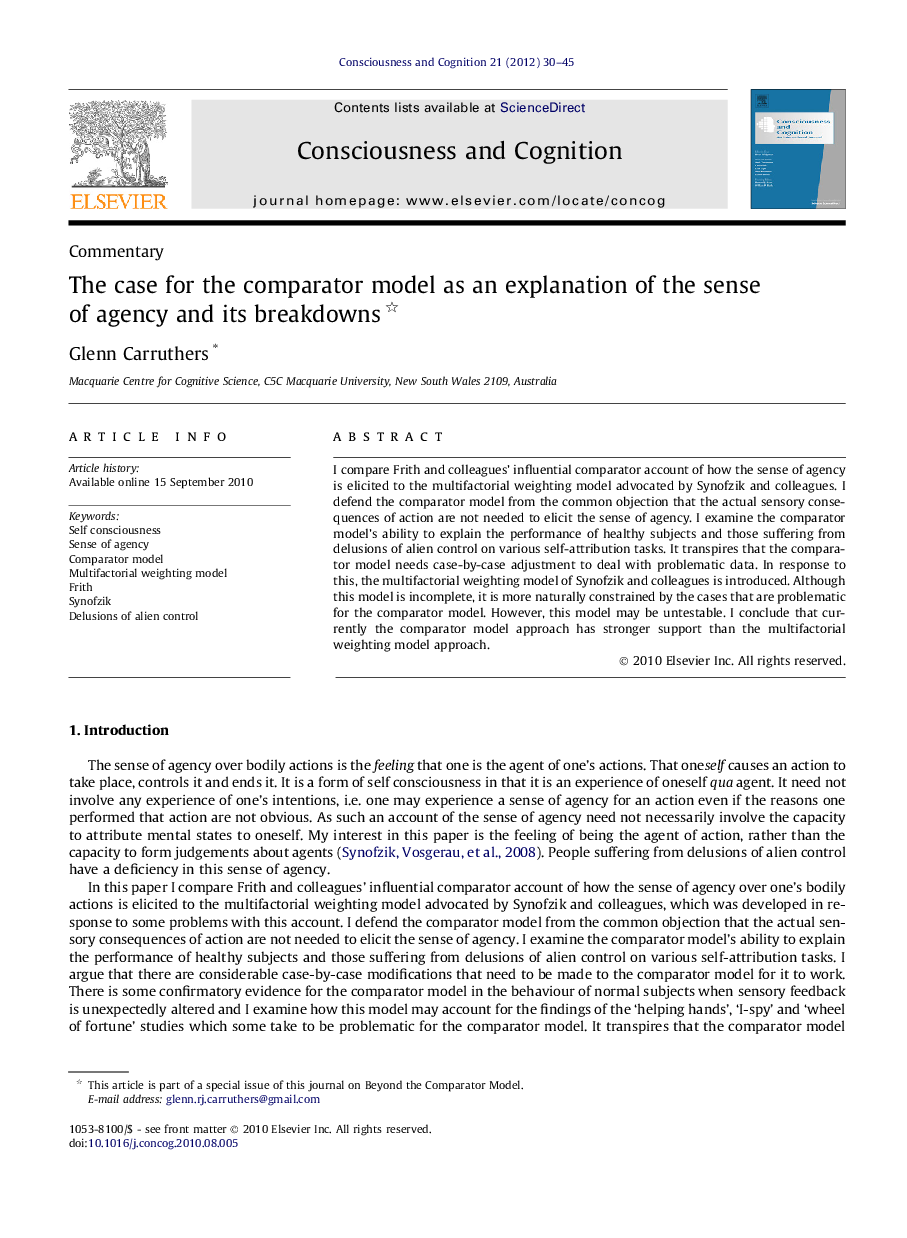| Article ID | Journal | Published Year | Pages | File Type |
|---|---|---|---|---|
| 10458538 | Consciousness and Cognition | 2012 | 16 Pages |
Abstract
I compare Frith and colleagues' influential comparator account of how the sense of agency is elicited to the multifactorial weighting model advocated by Synofzik and colleagues. I defend the comparator model from the common objection that the actual sensory consequences of action are not needed to elicit the sense of agency. I examine the comparator model's ability to explain the performance of healthy subjects and those suffering from delusions of alien control on various self-attribution tasks. It transpires that the comparator model needs case-by-case adjustment to deal with problematic data. In response to this, the multifactorial weighting model of Synofzik and colleagues is introduced. Although this model is incomplete, it is more naturally constrained by the cases that are problematic for the comparator model. However, this model may be untestable. I conclude that currently the comparator model approach has stronger support than the multifactorial weighting model approach.
Related Topics
Life Sciences
Neuroscience
Cognitive Neuroscience
Authors
Glenn Carruthers,
